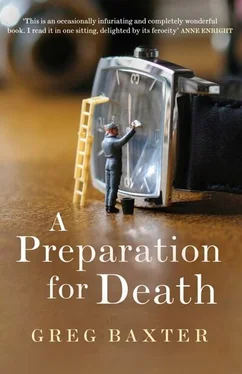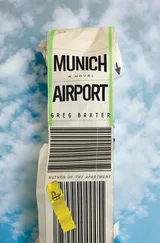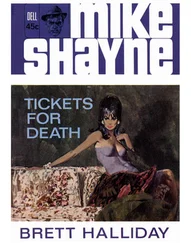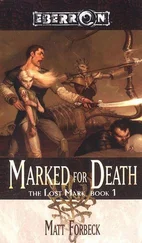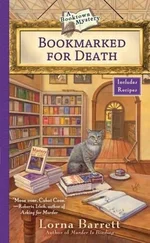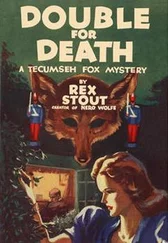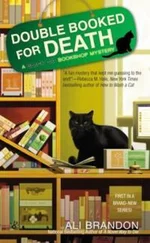Moving through the terminals, observing the state of permanent transit, of people checking email on their phones, going over presentations on their laptops, I felt as though I’d been thrown from my city like a man thrown from his car in a violent crash. My body was beginning to tremble. This was sobriety, sobriety before the big sweaty slumber. I was beginning to hallucinate in the lights.
By the time I’d got to Terminal C my gate had been posted, and I found a bar near by. There was one empty spot. I put my bag down and took out a book. There were two gigantic black women bartending. The really fat one said, Whachoo want, baby?
A beer, please, I said.
She stood behind the row of taps and opened her eyes widely. You got to be more specific, baby, she said. The name on her tag was Latisha.
I didn’t recognize the brand — some microbrew, with pale, amber and winter ale versions. I’d forgotten that nobody in America just drank beer anymore.
The pale, I said. Is it good?
Oh baby, it’s good. They’re all good.
The other woman shouted, You get a shot for free, baby!
For free?
Free shot with any pint, the first said.
I looked down the bar, and everybody had shots. Okay, I said. Jack.
The other woman shouted, Howboutsometequilababy?
A man a few spots down shouted, Fucking tequila, baby!
The other woman said, All right, baby!
The man smashed a wadded-up five-dollar bill on the bar with the palm of his hand and said, Fucking tequila! Shit yeah, baby!
Everyone nodded.
Okay, I said, tequila, baby.
Premium for an extra two dollars, baby.
Fuck that shit, yelled a guy at the far end of the bar.
Yeah, I said, just the well.
You sure?
I’m sure.
The really fat woman said, Okay, ID, baby.
The guy next to me said, Teesha, how fucking old does a guy have to be to not get carded?
I looked at him. Teesha looked at him. Sorry, dude, he said.
I knew my US passport would be easiest, but some unhappy need to defy the whole setting, to resist re-identification, urged me toward the Irish passport.
IRE land! Teesha shouted, and she showed it to the other woman, who did not look but exclaimed, IRE land!
I had no doubt these women saw passports from all over the world every day, but they knew what sold chemistry.
Motherfuckers in Ireland start drinking at birth, the guy next to me said. His name was Jake and he was from California, but he lived in San José, Costa Rica, where he and his brother ran a property business. He was shaggy, in a T-shirt and flip-flops.
Welcome to America, he said.
It was sunny and warm on my first morning in Texas, and I sat beside my father’s small pool for an hour or two in the late morning reading the sports section of the San Antonio Express-News , the worst ostensibly serious newspaper on earth, and a book called Hatchet Jobs , which I had found in some old boxes in the closet of my bedroom — boxes I’d always meant to ship to Ireland. My father had told me he had a surprise for me, and suggested I make no plans for the 24th, 25th or 26th. I knew what it was, of course — my father’s annual Christmas pilgrimage to the Holy Land of his unorthodox existence, the Horseshoe Casino in downtown Las Vegas. I had been looking forward to a little cigarette-less sobriety in Texas, just to give my body a break, but, having skipped breakfast as usual — a habit my father passed on to me, perhaps — I was drinking Miller Lites and smoking my stepmother’s Camel 100s.
My father’s house is a modest three-bed bungalow. It is very spare, neither clean nor dirty. My father, when he’s not working, watches a lot of golf and B-movies — he likes zombies — while drinking Miller Lites. He also plays card games on the computer, and my stepmother, Barbara, is always online or else drinking at Turtle Creek Tavern, a comfortable and windowless dive bar ten minutes away that opens at seven a.m. The Christmas tree in the living room looks absurd, but is earnest. At any moment, there are several abandoned cigarettes smouldering in ashtrays in various rooms. There is rarely any conversation, except about their cats — three of them, and one is gigantic and violent. There is a cool lifelessness about the place, and their lives have an unexaggerated harmony that I find comforting. I move, whenever I am home, from room to room without purpose. I look out windows for minutes at a time. I examine my father’s exotic succulents. I walk out back and throw a football to myself.
It was not even sixty degrees, but I was sitting at the pool’s edge, in jeans but barefoot, and without a shirt, sunbathing. My father was on the other side of the house, watering the driveway. It had been years since I last read Hatchet Jobs , a collection of caustic book reviews that had, I believed, unearthed and chopped up the roots of American literary pretence. I had just given up trying to sell my first novel, and the book reassured me that the publishing world was founded on the corrupt and flawed belief that the hacks and imitators I despised, and whose status I coveted, were the most serious writers in the country. They had been exposed. It felt like vindication. If I could not succeed, I could at least hold everything outside my imagination in contempt. I come back to the memory of my pettiness as to the grave of a tyrannical father — you are glad he is dead, but you wish you were the one who killed him.
After a while it was time to go shopping. My socks and boxers had been washed and dried, but I had no shirts except for a few yellow-armpit V-neck tees, and only one pair of jeans, which I’d been wearing since Dublin. I showered. The water in San Antonio is so dry that it barely seems to touch you. I didn’t have any toiletries, so I sprayed some old cologne, something from my high-school days, which hadn’t stirred in many years, on my armpits and chewed some gum by way of brushing my teeth. I put on my cowboy boots — the one great and unique thing about Texas being that nobody looks at cowboy boots strangely. By the time I was ready to leave, my father was standing in the back yard drinking a Miller Lite in his dressing gown, smoking one of his many lit cigarettes, his legs planted in gigantic brown fuzzy slippers. He was watering the pool.
I went outside to tell him I was going, and he slipped me some money. He is like a Mafia Godfather sometimes: who carries cash around in his dressing gown? He is a private man, and always walking away from you, always wrapping up conversations you’re trying to continue. He searches for empty rooms. He communes with crossword puzzles, which he finishes by memory, not pencils, and the Wall Street Journal . I don’t know whether it’s a lack of interest in his own intelligence or a repudiation of it, but I sense that everything in life depressed him except for his withdrawal from it.
He was, my mother tells me, a dedicated and obsessive intellectual in college, and bound for great things in scientific research. He used to work for days in labs without sleep, growing beards and not washing, and his mother and my mother brought him food and refused to leave until they’d watched him eat. I try to link that old self to the one I know, but they are totally incompatible. He was also a pool hustler — it was how he paid rent some months — and this is slightly closer to the man I know, whose affinities and habits are always denigrations of ordinary values. He chose to leave research for medicine in order to avoid Vietnam. His brother Pete was already fighting there — he flew helicopters — and wrote letters home telling my father to move to Mexico if they drafted him.
My father’s house is on the north side of San Antonio, about fifteen minutes’ drive, on the interstate, from the first jagged burps of the Texas Hill Country — one of the landscapes my first novel inhabited. I do not write to make up stories, or invent characters, or to capture something of the age, or speak to it. I write in order to annihilate the mystery and magnitude of places in my memory, to exorcize their possession of me. Driving through the landscape, past the shopping supercomplexes by the highway, none of which existed in my childhood — the city now stretches inconceivably outward, repetitively, serving no purpose beyond enlarging the dominion of convenience — I felt a grey and painless repulsion. It had nothing to do with unfamiliarity. It would be alien with or without the sprawl. I can never hope to experience it. I have destroyed it.
Читать дальше
